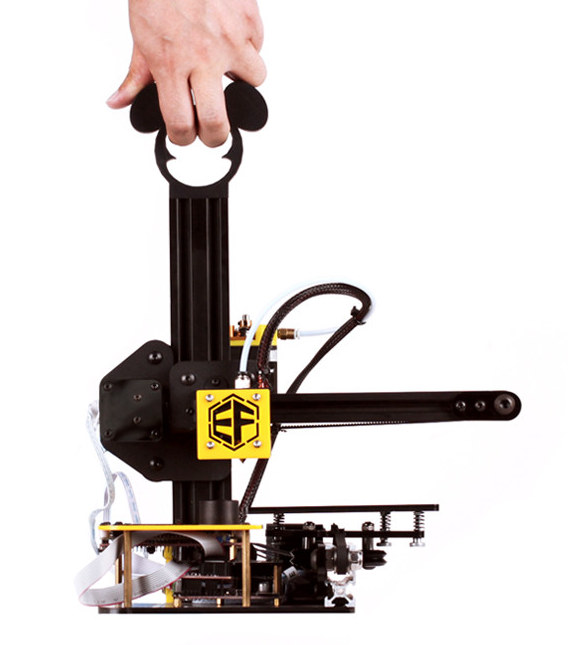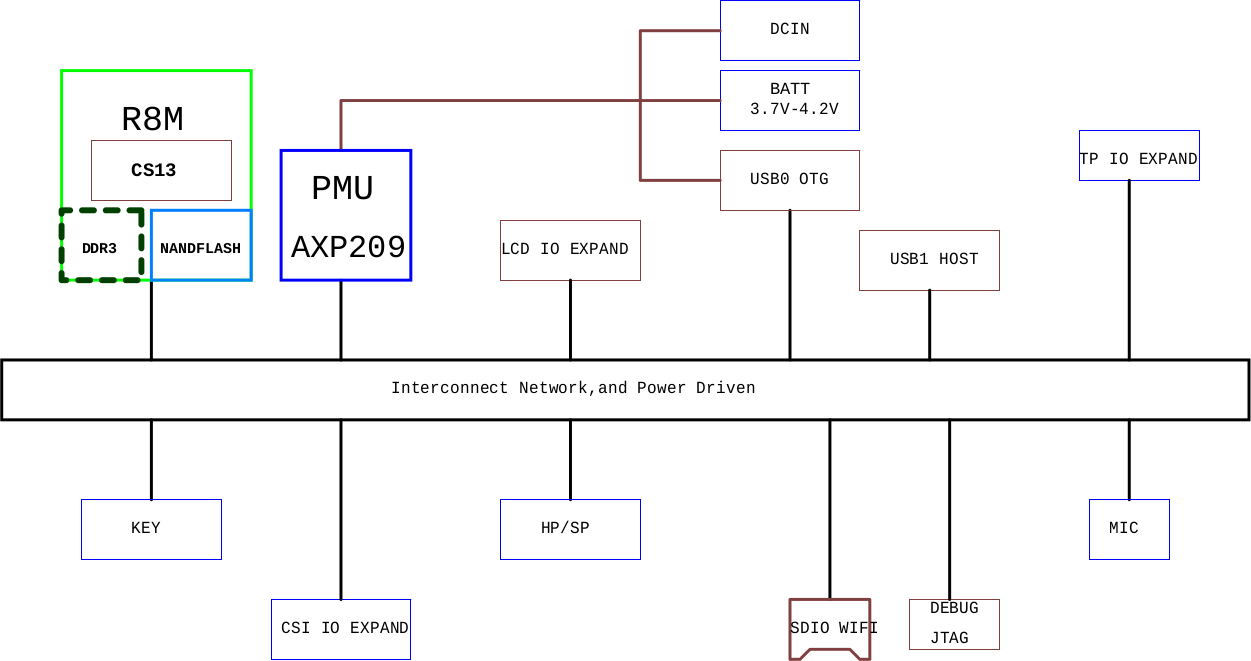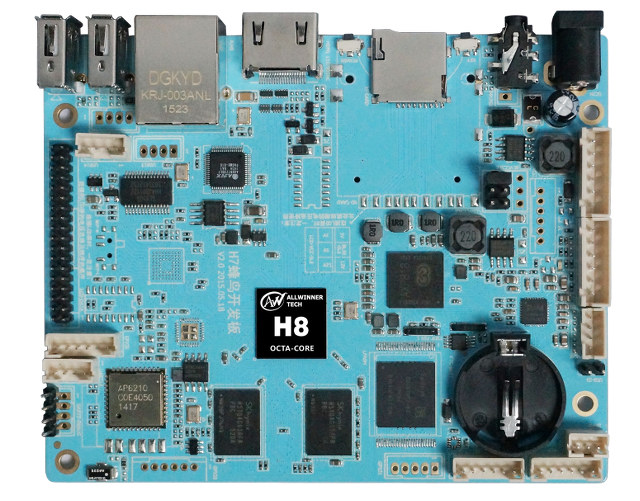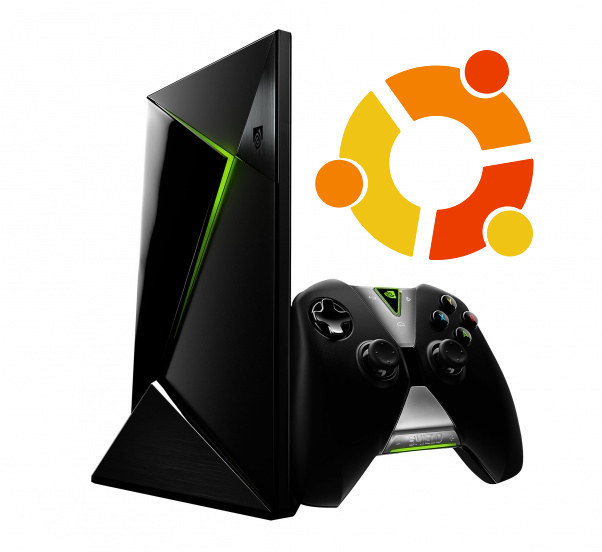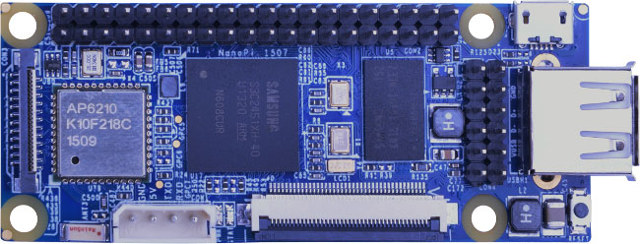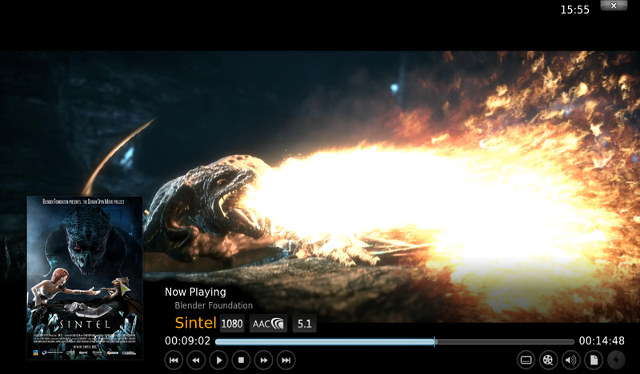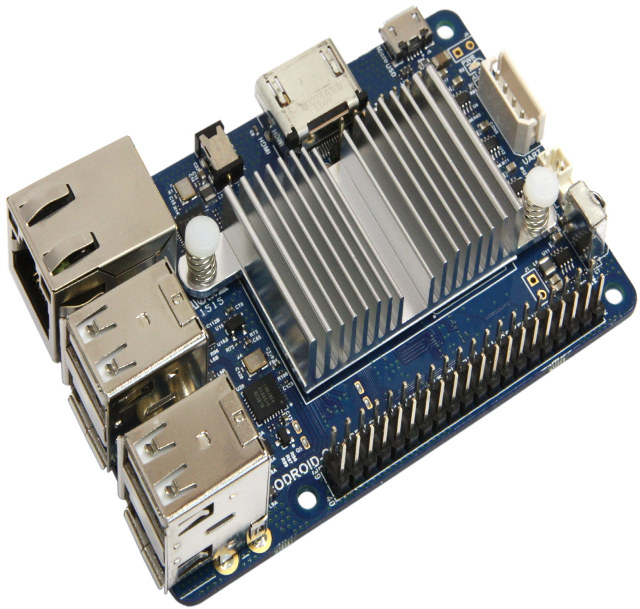ElecFreaks is a design house based in Shenzhen that caters to makers and startups, and started selling Arduino shields and accessories, as well as Raspberry Pi add-on boards, before moving to robotics kits, 3D printers, and other tools in demand by electronics hobbyists. The company has now designed Freaks3D portable 3D printer, and launched an Indiegogo campaign to fund production. Freaks3D printer specifications: Technology – Fused Deposition Modeling Build Volume – 130 x 150 x 100 mm (LxWxH) Nozzle Size – Standard 400 microns Resolution – Layer: 100 microns; XY: 50 microns Filament diameter – 1.75mm Filament Material – PLA or TPU 3D Files Transfer – USB via PC, or SD card Misc – LCD Display, one button operation, printing bed does not require heating Power Supply – 12V / 8A power adapter, or 12V / 5A power bank (Not included) Dimensions – 290 x 320 x 325 mm Weight […]
Next Thing Has Released Software and Hardware Files for the $9 CHIP Computer
Next Thing CHIP computer powered by Allwinner R8 module, also referred as “the $9 computer“, had a very successful crowdfunding campaign having raised over $2,000,000 from nearly 40,000 backers. When launching an electronics products on a crowdfunding campaign, many companies claim their device will be open source, only to disappoint once the perks actually ship, and Next Thing made the same promise, except they appear to have delivered as shown in their latest update “Holy C.H.I.P! It’s C.H.I.P!!!” showing the first production samples, and providing links to hardware design files for the Alpha version, as well as buildroot, U-boot and Linux source code. All resources can be found on docs.nexthing.co, but let’s check what they’ve released so far. Hardware design files on Github include: A Bill of Materials (BoM) Schematics in PDF and DSN formats PCB Layout in BRD and PNG format Pinouts for U12 and U14 connectors Mechanical files […]
Linaro 15.07 Release with Linux 4.2 and Android 5.1
Linaro 15.07 has been released with Linux 4.2-rc3 (Baseline), Linux 3.10.83, 3.14.45 and 3.18.17 (LSK), and Android 5.1.1_r8. The Linux kernel got various bug fixes, and a power reduction technique has been implemented for Qualcomm processor. Progress has been made to boot Android with UEFI on Hikey board, and work is still on-going on 96boards including Hisilicon Hikey, Qualcomm DragonBoard 410c, and an upcoming and yet-to-be-formally-announced Marvell PXA1928 board called Helium. Highlights of this release: Linux Linaro 4.2-rc3-2015.07 linaro-android topic updated to 4.2-rc3 and recent AOSP/android-3.18 included GATOR version 5.21.1 llct-misc-fixes topic: “HACK: of: Limit FDT size for CRC check on arm64” has been dropped. FVP model was the last target to require this hack, but the new FVP firmware doesn’t need it anymore updated integration-linaro-vexpress64 topic by ARM LT: Versatile Express TC2 support is back, HDLCD display now works on TC2, the topic will be renamed to integration-linaro-vexpress next […]
$90 H7 Hummingbird Development Board Features Allwinner H8 Octa-core Processor
Allwinner announced Allwinner H8 octa-core Cortex A7 processor in Q4 2014, which targets game console and TV boxes,but since then I had not really heard about hardware based on this new SoC. Merrii Technology has now launched a development board powered by Allwinner H8, and confusingly called it H7 Hummingbird. H7 Hummingboard development board specifications: SoC – AllWinner H8 octa-core ARM Cortex-A7 processor @ up to 2.0GHz with PowerVR SGX544 GPU @ up to 700MHz System Memory – 1GB DDR3 Storage – 4GB eMMC flash + micro SD card slot or SD card slot (option) up to 32GB Video Output / Display I/F – HDMI up to 1080p, MIPI DSI connector, LCD connector for RGB/CPU/LVDS LCD including a 6-pin header for backlight. Capacitive touch panel header Audio – HDMI, headset/microphone jack, audio speaker connector, Connectivity – 10/100M Ethernet (Despite the processor support Gigabit Ethernet), WiFi 802.11b/g/n and Bluetooth 4.0 via […]
Nvidia SHIELD TV Benchmarks in Ubuntu Shows Core i3 Like Performance
Nvidia SHIELD Android TV was announced this March with Nvidia Tegra X1 octa-core Cortex A57 + A53 processor. So far, I had not seen any Ubuntu or other Linux distribution port, but Michael Mirabel of Phoronix got remote access to a Shield TV PRO – model with a 500GB hard drive – running Ubuntu 14.10. It’s not clear who provided access, either Nvidia or third parties, but somebody posted an Ubuntu 14.10 port on XDA Developers Forums recently so it might be that one. He obviously ran Phoronix Test Suite on the device, and compared to it some other ARM devices (Compule Utilite, Jetson TK1), MIPS Creator CI20, low power x86 devices (Compute Stick, Intel NUC with Celeron N2820), and an Intel Core i3-5010u NUC. The Tegra X1 platform easily beats all other low power platforms, and comes close to the Core i3 mini PC in most tests. In the […]
NanoPi is a $16 WiFi and Bluetooth LE Linux Development Board
NanoPi is a new Linux development board powered by Samsung S3C2451 ARM9 processor with Wi-Fi and Bluetooth LE connectivity, connectors for a camera and an LCD display, as well as two expansion headers including a 40-pin “Raspberry Pi compatible” header. NanoPi specifications: Processor – Samsung S3C2451 ARM9 @ 400Mhz System Memory – 64M DDR2 Storage – micro SD slot Connectivity – AP6210 module for 802.11 b/g/n WiFi and Bluetooth 4.0 USB – 1x USB 1.1 host port, 1x micro USB OTG port for power and data (serial or Ethernet) Display I/F – LCD Interface: 0.5mm pitch SMT FPC seat, support full-color LCD (RGB: 8-8-8) Camera I/F – DVP Camera Interface: 0.5mm pitch FPC connector, including ITU-R BT 601/656 8-bit, I2C and GPIOs Debugging – Serial Port Expansion Headers “GPIO1” – 40-pin header including UART, SPI, I2C, GPIO pins (Raspberry Pi compatible) “GPIO2” – 12-pin header including I2S, I2C, UART pins Power – […]
Kodi 15 Isengard Release
After several months of development, including H.265 hardware decoding in Android, Kodi 15 “Isengard” has recently been released by the developers. It’s available for Windows, Linux, Mac OS X, and Android, and for the first time a stable release can directly be downloaded from Google Play store with so far over 400,000 active installs from the app store. Key features and improvements of Kodi 15 include: Android specific changes – 4K, refresh rate switching and H.265 for hardware that support it including several Amlogic platforms, and Nvidia Shield Android TV. Android 5.0 and greater is required. New chapter selector window – Allows users to visually browse and select chapters from mkv videos and other containers that support chapters Adaptive seeking (aka Skip Steps) – The more times a user presses a button to seek in a period of time, the larger the jump forward or backward will be. Audio and […]
ODROID-C1+ Board is an Upcoming Upgrade to ODROID-C1 Board
ODROID-C1 board has been relatively popular thanks to its great hardware features and good software support for its $35 price tag. In mid-June however, ODROID-C1 got out of stock due to sudden large orders, and it was only scheduled to sale again in early August because of long leadtime for some components. It turns out ODROID-C1 may never sell again, simply because it will be replaced by ODROID-C1+ with various improvements. It’s still very much based on ODROID-C1 with Amlogic S805 processor, 1GB RAM, and an eMMC sockets, but Hardkernel made the following improvements: HDMI connector change to Type-A from Type-D (micro HDMI). Improved SD card compatibility CEC function whether the RTC backup battery is installed or not ODROID-C1+ can be powered from the USB OTG port as well as DC-Jack I2S signals exposed for external audio DAC All of which are welcomed modifications. The board size will remain the […]


